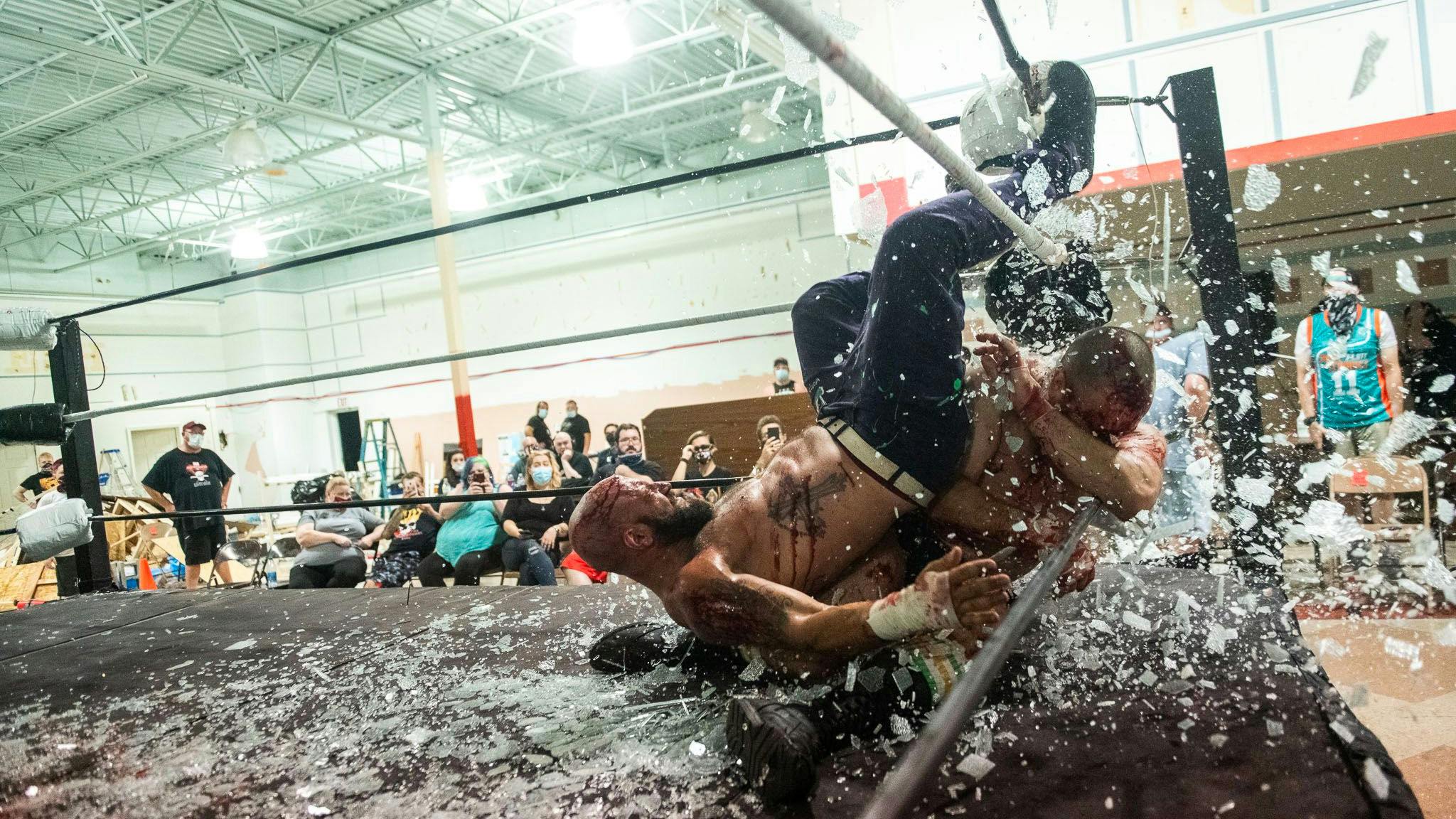There’s something about the gnarly deathmatches that has kept fans returning for decades – even during the pandemic. So what is it that keeps Nick coming back for more?
“I think [wrestling] is total self-expression. I think it's a form of improv. I think it's a form of performance art. It’s also performance sports, like athleticism. It combines all these multiple facets. That's why I love it as an art. I call it art because it is art. I want that to be fucking clear, it is 1,000 per cent art.”
With his roots in live music photography, Nick explains how capturing these kind of events compares. “I’ve shot hardcore shows, I’ve shot punk shows, so I'm used to shooting a small, tight environment where a lot of action's happening… But this is different because it is literally like that but right in front of you! It’s really crazy to shoot; I still have a hard time, to be honest.”
If all this bloodshed and barbarism sounds appealing, Nick says there is no better time to get into deathmatch than right now.
“I think we are in the golden era. I think John Wayne Murdoch and Alex Cohen are two of the best in the world. They wrestled each other once and they’re going to do it again soon – I don’t think I’m allowed to say when. Oh, and Matt Tremont is the best wrestler on the fucking planet! I don't care what anyone says. This man is our current day Dusty Rhodes but in deathmatch. I haven't seen anyone tell stories like that man.”
While chatting to Nick and staring at his photographs, we find ourselves getting deep, discussing the meaning of aerial acrobatics and the beauty of barbed-wire brawls. The stoic philosopher Marcus Aurelius once wrote that, “The art of living is more like wrestling than dancing, because an artful life requires being prepared to meet and withstand sudden and unexpected attacks.” Being that Aurelius was a Roman emperor almost 2,000 years ago, it’s safe to say that he wasn’t referring to the broken glass am-dram we see in Nick’s photos. However, with the difficulties that the pandemic has thrown our way over the last two years, maybe that quote still stands up.
We wonder if thats that’s what draws others to deathmatch wrestling. The conflict, the danger, the drama and the jeopardy of it are all present in our daily lives. Also, as an audience member, watching bloody hunks battle it out gives us respite from our own personal battles. Deathmatch is the good, old-fashioned fun of a parish hall pantomime, but with some added ultraviolence and the chance that a fleck of blood or shard of glass will ricochet into our giddy faces. We get the rare treat of watching a conflict unfold in front us without being directly involved. We get to indulge our innermost bloodlust, dance with danger and inject some adrenaline into our otherwise muffled existences. Long live the deathmatch.
More of Nick’s work can be seen on his official website and on Instagram.
